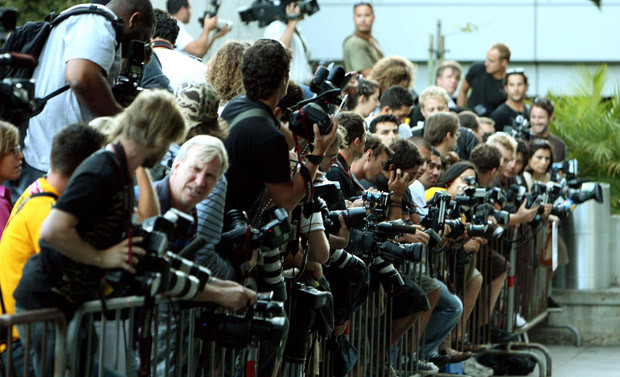The British Press Photographers' Association (BPPA) has hit out at the Leveson inquiry over what it called the "one-way traffic from witnesses criticising photographers".
In a statement today, the BPPA went on to say that the form of the inquiry had been compounded by "dreadfully lazy television journalism that has painted each and every one of us as the worst kind of citizen paparazzi".
In response it has asked to be granted core participant status, which would allow it to have legal representation at the inquiry and to put questions to witnesses via the inquiry's legal team.
In its submission to Lord Leveson, the BPPA said that the evidence given so far at the inquiry made press photographers "subject to explicit or significant criticism during the inquiry proceedings or in its report", adding that as a core participant it would be able to "give evidence on the issues of culture, practices and ethics, which the inquiry might not otherwise be able to obtain".
The role of the paparazzi in tabloid coverage of celebrities was most prominent during Sienna Miller's appearance at the inquiry. She described being spat at and chased down the road by 10 photographers.
The BPPA contends in its submission that press photographers are "the very visible face of the UK print media" and as a result are "regularly subjected to false attribution and accusations as well as verbal abuse from members of the public and from a significant number of people who work in the celebrity, entertainment and even law and order industries".
It also challenged the use of the term paparazzi, calling it a "pejorative term" that "harms our collective reputations".
Part one of the inquiry, currently underway, is designed to examine the culture, practices and ethics of the press. The BPPA said it hoped to assist it with:
- The culture and practices of professional press photographers;
- the market place for news pictures and how it affects those cultures and practices;
- the problems that the market for celebrity images is causing;
- the dangers of introducing French style privacy laws;
- the need for cooperation between all parts of the media to establish clear and enforceable ethical guidelines and codes of behaviour and etiquette;
- proposals to help control the problems of unethical photographers and citizen journalists with cameras.
Testimony from witnesses scheduled for today – Alex Thomson and Paul Staines – has been postponed and the inquiry will reconvene on Monday.
Free daily newsletter
If you like our news and feature articles, you can sign up to receive our free daily (Mon-Fri) email newsletter (mobile friendly).










